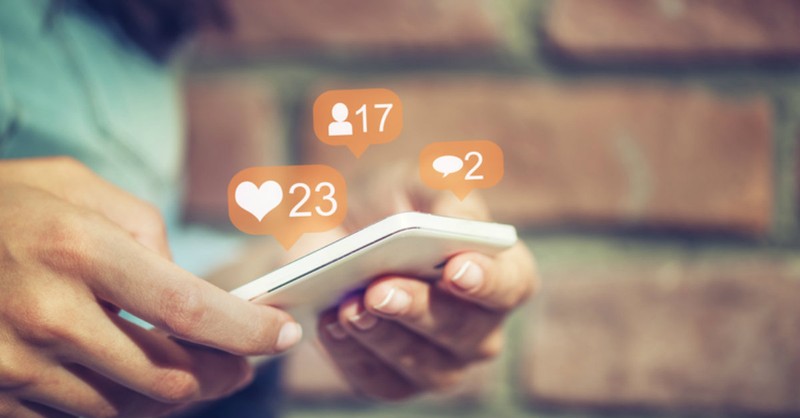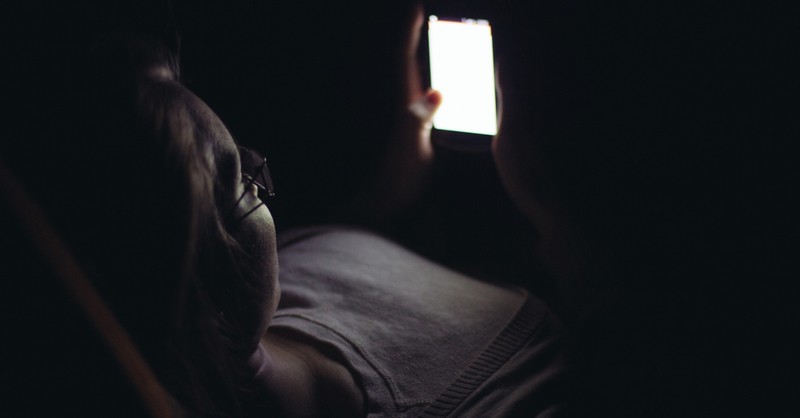
I was addicted to my Smartphone. I checked Instagram at traffic lights, hid in the bathroom to scroll Facebook, and peeked at email fifty times a day. I listened to podcasts in the shower and messaged online friends and strangers at all times of the day. I was always available—at least to my online community.
I knew I needed a digital detox for my mental health, but wasn’t sure how to do it. Then I read a book called Digital Minimalism by Cal Newport, who cited ways Smartphones were designed to keep us glued to our screens. He talked about the dopamine hits we receive with each “like,” how one developer called the Smartphone a “slot machine,” and others admitted developers exploit our basic human need for social approval. Bill Maher joked that the App Store was coming for our souls.
Photo Credit: Getty Images/Skynex

1. Consider Your "Why"
Newport wrote, “as revealed by whistle blowers and researchers … these technologies are in many cases specifically designed to trigger this addictive behavior. Compulsive use, in this context, is not the result of a character flaw, but instead the realization of a massively profitable business plan. We didn’t sign up for the digital lives we now lead. They were instead, to a large extent, crafted in boardrooms to serve the interests of a select group of technology investors.”
Why do you need to do a digital fast? What do you hope to gain from stepping away from your screens?
Personally, I sought peace, connections with real-live people, mental space for prayer and creativity, and control of my digital life instead of allowing my digital life to control me. I needed freedom. But it turns out that to find freedom, you first need boundaries and limits.
Photo Credit: © Getty Images

2. Define Your Technology Rules and Consider the Following Questions:
1. Will you still listen to podcasts, music, and audiobooks? When? For how long?
2. Will you go off of all social media?
3. What about video or computer games?
4. Will you still check messaging apps like Voxer, Facebook messenger, Marco Polo, Snapchat, or Whatsapp? If so, how frequently? Could you live without them?
5. If you need to check social media for your job, what parameters can you put around the time you spend on those sites?
6. Will you still check the news? How? For how long?
7. How will you put limits on email?
8. Will you still watch television? If so, how often?
Photo Credit: © Unsplash/Jakob Owens

3. Declutter Your Smartphone
Which of your apps can you live without? Consider “dumbing down” your Smartphone to only text, make calls, use GPS, and have any other business-related apps you might need like Uber or the weather app. I downloaded a free app called “Block Site” and only my husband knew the password to unblock Twitter, Facebook, Instagram, Pinterest, and my phone’s web browser. Apparently Apple phones won’t allow you to block the browser, so a friend who did the fast with me buried it two folders away so it wasn’t easy to access. She also turned her phone to grayscale so it would be less appealing.
The first few days of the fast, I kept grabbing for my phone (and spent way too long scrolling through Goodreads and the weather app). Eventually, my phone became so boring that I left it on the kitchen counter and often forgot it when I ran errands.
Photo Credit: © Getty Images

4. Block Computer Websites
Which sites will you veer away from on your computer? I ended up not needing to do this, but I considered downloading Freedom to help. I allowed myself to go online, but didn’t go to any social media sites and only checked email two or three times a day.
Photo Credit: © Unsplash

5. Plan Your Downtime
The first few weeks of my digital detox I felt lonely and unseen. I checked my phone for text messages and often only received one or two texts every couple days. I quickly discovered the importance of having goals in place during school pickup, in line at the grocery store, or at the doctor’s office. I made a list of house projects like refinishing furniture, sewing napkins, and organizing closets. I also had a long list of books I wanted to read. I was shocked to find that tiny shavings of time could amount to whole chunks of time when added together. Slowly, I grew to appreciate the reclaimed time and celebrated the finished books and projects.
How will you fill your leisure time?
Photo Credit: © Getty Images/Mkovalevskaya

6. Physically Distance Yourself from Your Phone
Sleep with your phone in a different room in the house. Forget your phone on purpose sometimes just to remind yourself you don’t need to be chained to it at all times. I tried to take fewer pictures because snapping pictures often took me out of the moment and drew me back into the world of my phone. Plus, I wasn’t on social media, so I didn’t have anywhere to share them. I did end up sending some pictures to my mom, mother-in-law, and best friends instead of sharing them first with strangers on Instagram or Facebook.
Photo Credit: © Getty Images/disquis

7. Tell your Friends and Family about Your Fast
This is mainly so your loved ones will know how to contact you, but also for accountability. Since I deleted certain apps used to communicate with friends and family, I told them that they’d only be able to text, call, or email me. Not surprisingly, they were willing to adjust if they needed to contact me.
Photo Credit: © Getty Images

8. Reflect on Your Experience
Throughout Lent, make a plan for how you’ll re-enter the digital world. Perhaps jot down weekly reflections in a journal so you can look back at your experience. One unusual effect of this experiment was that I wanted to host people in my home again. In the absence of online connections, which had served like a fast food fix, my soul longed for the meat and vegetable connections of real-life friendships.
Since my digital fast, I spend less time online and still haven’t put the internet or social media apps back on my phone (except Instagram occasionally, which I promptly uninstall after posting). As Cal Newport suggested, I now ask myself how much value each app or social media site brings to my life. Is it worth my time? Now, sharing snippets of life on social media seems to trivialize the depth of my time with loved ones and steals peace and joy from me in the process, so the benefit doesn’t outweigh the cost. Thankfully, my digital and online life is now a faint reflection of my real life instead of the place I spend most of my time. My digital fast brought freedom and a reawakening to what really matters.
Leslie Verner is a goer who is learning how to stay. She traveled widely and lived in China five years before returning to the United States. A former teacher with a masters in intercultural studies, she is currently a freelance writer living with her husband and three children in Colorado. She’s the author of Invited: The Power of Hospitality in an Age of Loneliness (Herald Press). Leslie writes about faith, justice, family, and cross-cultural issues at www.scrapingraisins.com and elsewhere on the web. Follow her on Twitter, Facebook and Instagram.
Photo Credit: © Getty Images
Originally published Tuesday, 03 March 2020.









